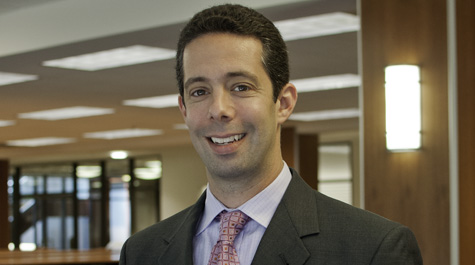Cell Phone Searches: Gershowitz's Amicus Brief Argues Aluminum Foil Is Simple Remedy
Professor Gershowitz said, "I was pleased to write the brief on behalf of more than two dozen criminal procedure scholars from around the country. We argue that the Court should forbid warrantless cell phone searches and instead encourage police to preserve evidence by placing the phone in a Faraday bag or wrapping it in aluminum foil. Police can effectively and cheaply prevent the destruction of evidence while applying for a search warrant."
The brief was cited by the defendant in the Riley case as one of the reasons for disallowing warrantless cell phone searches, and it was recently featured by U.S. Law Week in a March 18 post titled "Call It the 'MacGyver' Fix: Aluminum Foil May Solve Cell Phone Search Dilemma."
Gershowitz has written multiple articles on the legality of warrantless searches of cell phones. He recently published an article on the issue in the William & Mary Bill of Rights Journal titled "Seizing a Cell Phone Incident to Arrest: Data Extraction Devices, Faraday Bags, or Aluminum Foil as a Solution to the Warrantless Cell Phone Search Problem" (SSRN). The Wall Street Journal's LawBlog referenced the article in an August 2013 post titled "What Seized Cell Phones and Leftovers Have in Common."
In April, the Supreme Court will hear argument on the question of whether the Fourth Amendment prohibits police from conducting warrantless searches of cell phones as part of an arrest. Riley v. California involves a challenge to a California appellate panel's decision upholding the use of evidence that police obtained during a cell phone search. On the other hand, in United States v. Wurie, the federal government is appealing a First Circuit ruling that vacated a drug dealer's convictions because police searched his cell phone in order to find the address of his home, where police found other evidence.
